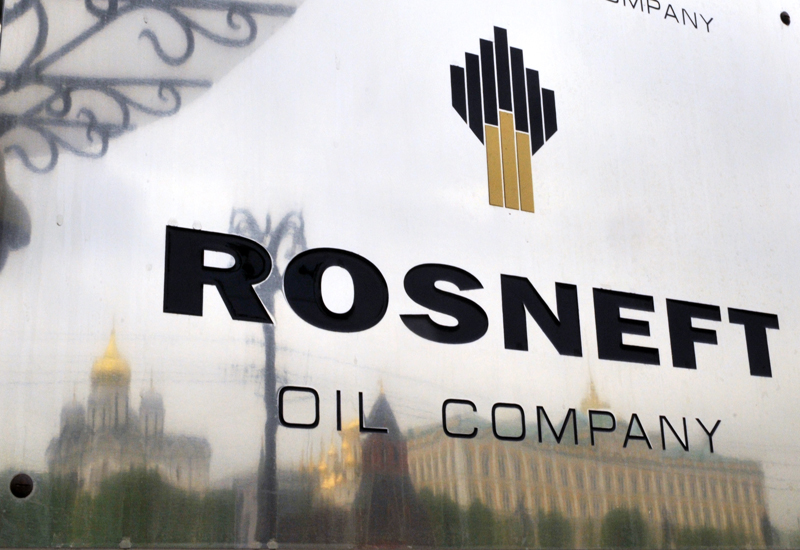
 Rosneft doubled up its bet on BP’s Russian joint venture on Monday, agreeing to pay $55bn for 100 per cent of the oil producer in a deal that will make it the world’s largest publicly traded energy company and tighten the Kremlin’s grip on Russia’s energy sector.
Rosneft doubled up its bet on BP’s Russian joint venture on Monday, agreeing to pay $55bn for 100 per cent of the oil producer in a deal that will make it the world’s largest publicly traded energy company and tighten the Kremlin’s grip on Russia’s energy sector.Rosneft will buy out both of TNK-BP’s current owners – future in Russia for decades to come, potentially giving the UK group access to some of the world’s largest untapped oil and gas resources. In a statement, Igor Sechin, Rosneft chief executive, said his company would "benefit from BP’s experience and its record of implementing best international practices in Russia”.
The agreement finally brings down the curtain on TNK-BP, a joint venture that has proven highly lucrative for both BP and AAR but which has been plagued by bitter disputes between the two partners. It also comes as BP negotiates with the US Department of Justice on a broad settlement that would resolve the company’s civil and criminal liabilities arising from the 2010 Deepwater Horizon disaster.
In an interview, chief executive Bob Dudley said that if the company settles with the DoJ, "BP will have removed two of the biggest overhanging uncertainties – the US and Russia – and we will then be able to focus on our business”.
He defended the idea of taking such a large interest in an entity that is often seen as a proxy for the Russian state. "Rosneft management are committed to creating an efficient, modern, global company,” Mr Dudley said. "National oil companies are the future of the oil business.”
Rosneft will pay BP $17.1bn in cash as well as shares representing 12.84 per cent of the company. BP will use $4.8bn of the cash to purchase a further 5.66 per cent of Rosneft from the Russian government, at a price of $8 a share.
The terms will leave BP with $12.3bn in cash and 19.75 per cent of Rosneft, including its existing holding of 1.25 per cent.
The UK group will be able to book a nearly 20 per cent share of Rosneft’s profit, production and reserves. According to data provided by BP, that would translate into 900,000 barrels a day of production and 5.4bn barrels of reserves, compared to 986,000 b/d and 4.8bn barrels that it was able to claim from its share of TNK-BP.
The deal will place a huge financial burden on Rosneft. But a Moscow-based analyst who covers the company said it should be manageable, as Rosneft is expected to earn net income next year of about $16.7bn based on an oil price of $110 a barrel.
The analyst, who asked not to be named, added that Rosneft’s debt levels will rise to $71bn as a result of the TNK-BP transaction. With strong cash flows, it can spend up to $5bn a year on repayments and pay off its debts in 14 years.
Some investors have worried about the impact the loss of TNK-BP will have on BP. The company accounted for more than a quarter of BP’s production and a fifth of its reserves, and provided the UK oil group with $19bn in dividends since its creation in 2003.
BP has insisted that its earnings will not be significantly affected. An analyst who covers both companies said BP earned about $4bn from TNK-BP last year and will earn about $3bn a year from its investment in Rosneft. "We think it’ll get $700m-$900m a year in dividends from Rosneft, compared to an average of $1.9bn a year from TNK-BP,” he said. But he noted that TNK-BP’s payouts would have begun to decline anyway as the company’s growth flattened.
While there will be some effect on earnings, the advantages for BP investors are clear, BP executives say – exposure to one of the world’s largest oil companies, the synergies obtained from combining Rosneft’s and TNK-BP’s oil and gasfields, many of which are adjacent to each other, and the upside from Rosneft’s big investment in Venezuela, a country with some of the world’s largest reserves of "heavy” or unconventional oil.
There will also be some more immediate gains. Analysts say BP is expected to pay out up to $5bn in dividends or share buybacks to offset the dilutive effect of the Rosneft transaction. Meanwhile, a clause in the deal prevents the Russian company from carrying out a fundraising rights issue that would harm the interests of BP shareholders.
Guy Chazan in London and Catherine Belton in Moscow



_jpg/250px-ElbeDay1945_(NARA_ww2-121).jpg)





